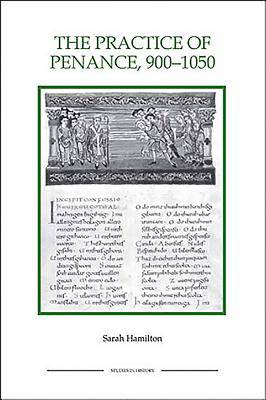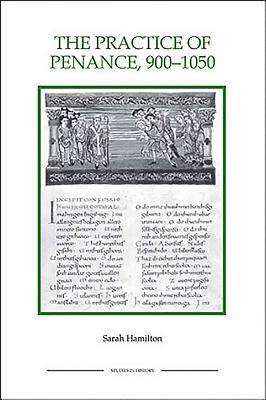
Je cadeautjes zeker op tijd in huis hebben voor de feestdagen? Kom langs in onze winkels en vind het perfecte geschenk!
- Afhalen na 1 uur in een winkel met voorraad
- Gratis thuislevering in België vanaf € 30
- Ruim aanbod met 7 miljoen producten
Je cadeautjes zeker op tijd in huis hebben voor de feestdagen? Kom langs in onze winkels en vind het perfecte geschenk!
- Afhalen na 1 uur in een winkel met voorraad
- Gratis thuislevering in België vanaf € 30
- Ruim aanbod met 7 miljoen producten
Zoeken
Omschrijving
This study examines all forms of penitential practice in the Holy Roman Empire under the Ottonian and Salian Reich, c.900 - c.1050. This crucial period in the history of penance, falling between the Carolingians' codification of public and private penance, and the promotion of the practice of confession in the thirteenth century, has largely been ignored by historians. Tracing the varieties of penitential practice recorded in church law, the liturgy, monastic practice, narrative and documentary sources, Dr Hamilton's book argues that many of the changes previously attributed to the twelfth and thirteenth centuries can be found earlier in the tenth and early eleventh centuries. Whilst acknowledging that there was a degree of continuity from the Carolingian period, she asserts that the period should be seen as having its own dynamic. Investigating the sources for penitential practice by genre, she acknowledges the prescriptive bias of many of them and points ways around the problem in order to establish the reality of practice in this area at this time. This book thus studies the Church in action in the tenth and eleventh centuries, the reality of relations between churchmen, and between churchmen and the laity, as well as the nature of clerical aspirations. It examines the legacy left by the Carolingian reformers and contributes to our understanding of pre-Gregorian mentalities in the period before the late eleventh-century reforms. SARAH HAMILTON teaches in the Department of History, University of Exeter.
Specificaties
Betrokkenen
- Auteur(s):
- Uitgeverij:
Inhoud
- Aantal bladzijden:
- 296
- Taal:
- Engels
- Reeks:
- Reeksnummer:
- nr. 20
Eigenschappen
- Productcode (EAN):
- 9781843836384
- Verschijningsdatum:
- 15/09/2011
- Uitvoering:
- Paperback
- Formaat:
- Trade paperback (VS)
- Afmetingen:
- 156 mm x 234 mm
- Gewicht:
- 412 g

Alleen bij Standaard Boekhandel
+ 119 punten op je klantenkaart van Standaard Boekhandel
Beoordelingen
We publiceren alleen reviews die voldoen aan de voorwaarden voor reviews. Bekijk onze voorwaarden voor reviews.









